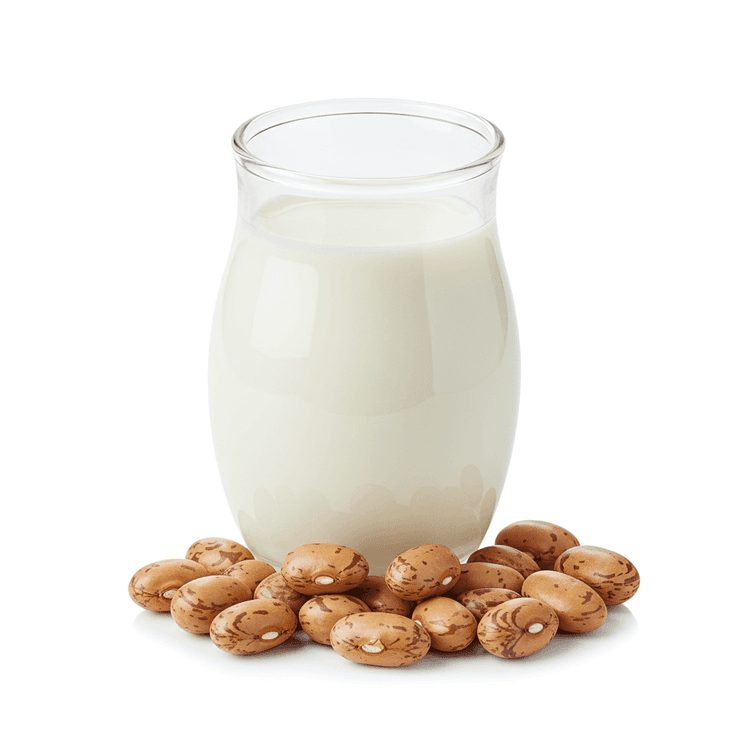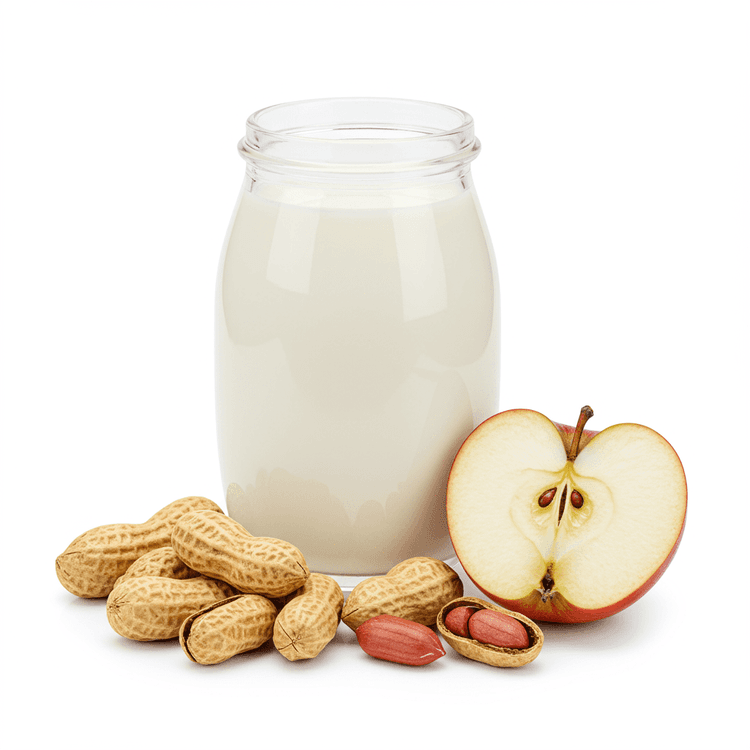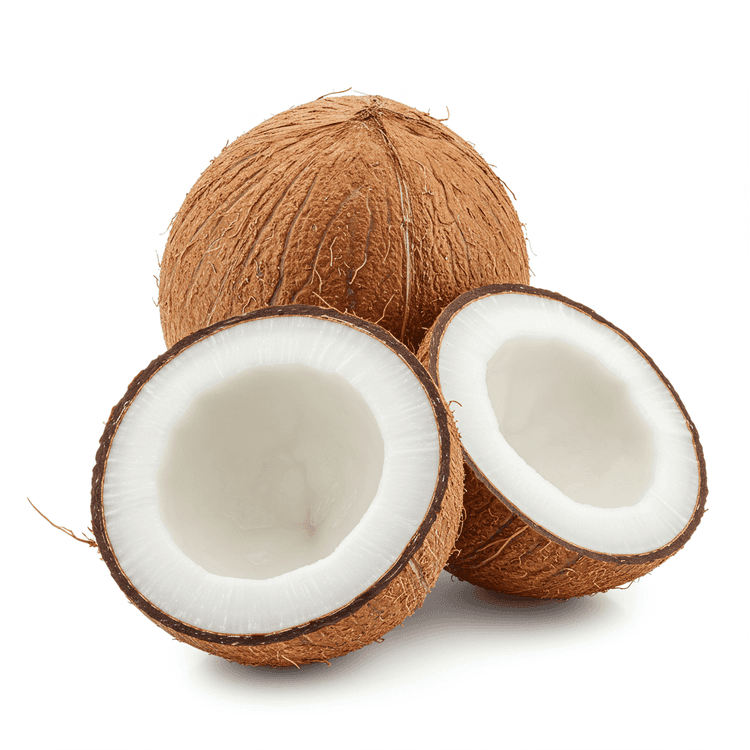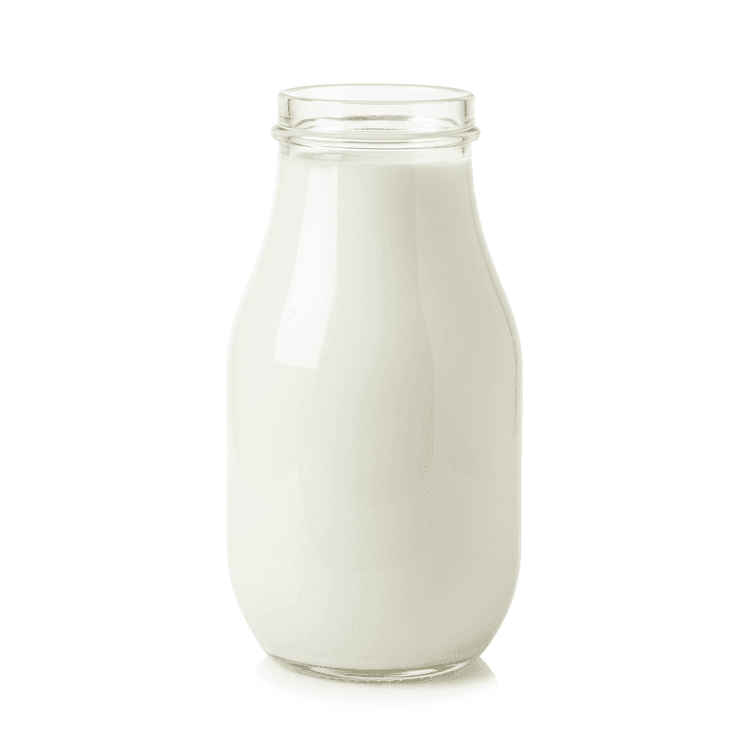
Plant-Based Milk
Plant-based milk is a dairy-free alternative to traditional cow's milk, crafted from various plant sources. It offers a creamy, often subtly sweet, and sometimes nutty flavor profile depending on the base ingredient. Popular types include almond milk, oat milk, soy milk, coconut milk, and rice milk, each with its unique texture and taste. These alternatives provide lactose-free, vegan-friendly options for beverages, cooking, and baking. Explore the diverse world of plant-based milks to find the perfect substitute for your dietary needs and culinary creations.
Common Uses
- Use plant-based milk as a direct substitute for dairy milk in your morning cereal or granola for a creamy, vegan breakfast option.
- Substitute cow's milk with plant-based milk in your favorite baking recipes, like cakes, muffins, and pancakes, maintaining moisture and adding a subtle flavor depending on the type used.
- Blend plant-based milk into smoothies to create creamy, dairy-free beverages filled with fruits, vegetables, and protein powders.
- Froth plant-based milk using a milk frother to create lattes, cappuccinos, and other specialty coffee drinks with a rich, foamy texture, perfect for a vegan cafe experience.
- Employ plant-based milk as a base for creamy soups and sauces, adding body and richness without the use of dairy products in dishes such as cream of mushroom soup or béchamel sauce.
- Incorporate plant-based milk into desserts such as vegan ice cream, puddings, and custards, providing a creamy texture and dairy-free alternative for a delightful treat.
Nutrition (per serving)
Nutrition (per serving)
Calories
45.0kcal (2.25%)
Protein
1.0g (2%)
Carbs
5.0g (1.82%)
Sugars
4.0g (8%)
Healthy Fat
2.0g
Unhealthy Fat
0.0g
% Daily Value based on a 2000 calorie diet
Nutrition (per serving)
Calories
45.0kcal (2.25%)
Protein
1.0g (2%)
Carbs
5.0g (1.82%)
Sugars
4.0g (8%)
Healthy Fat
2.0g
Unhealthy Fat
0.0g
% Daily Value based on a 2000 calorie diet
Health Benefits
- Excellent source of vitamins and minerals like calcium, vitamin D, and vitamin B12, often fortified to match dairy milk's nutritional profile.
- May be lower in calories and fat compared to dairy milk, supporting weight management goals.
- Lactose-free and suitable for individuals with lactose intolerance or dairy allergies.
- Supports heart health with lower saturated fat content in some varieties and potential for cholesterol reduction (depending on the plant source).
- Rich in antioxidants, depending on the plant source (e.g., almond, soy), offering protection against cell damage.
Substitutes
Chefadora AI is here.
Experience smarter, stress-free cooking.
Storage Tips
Plant-based milk should be stored in the refrigerator after opening. Unopened shelf-stable varieties can be kept at room temperature in a cool, dark place like a pantry. Once opened, consume within 7-10 days for optimal freshness and flavor. Check the expiration date before consuming. Avoid freezing, as it can alter the texture, causing separation.
Marnirni-apinthi Building, Lot Fourteen,
North Terrace, Adelaide, South Australia, 5000
Australia





